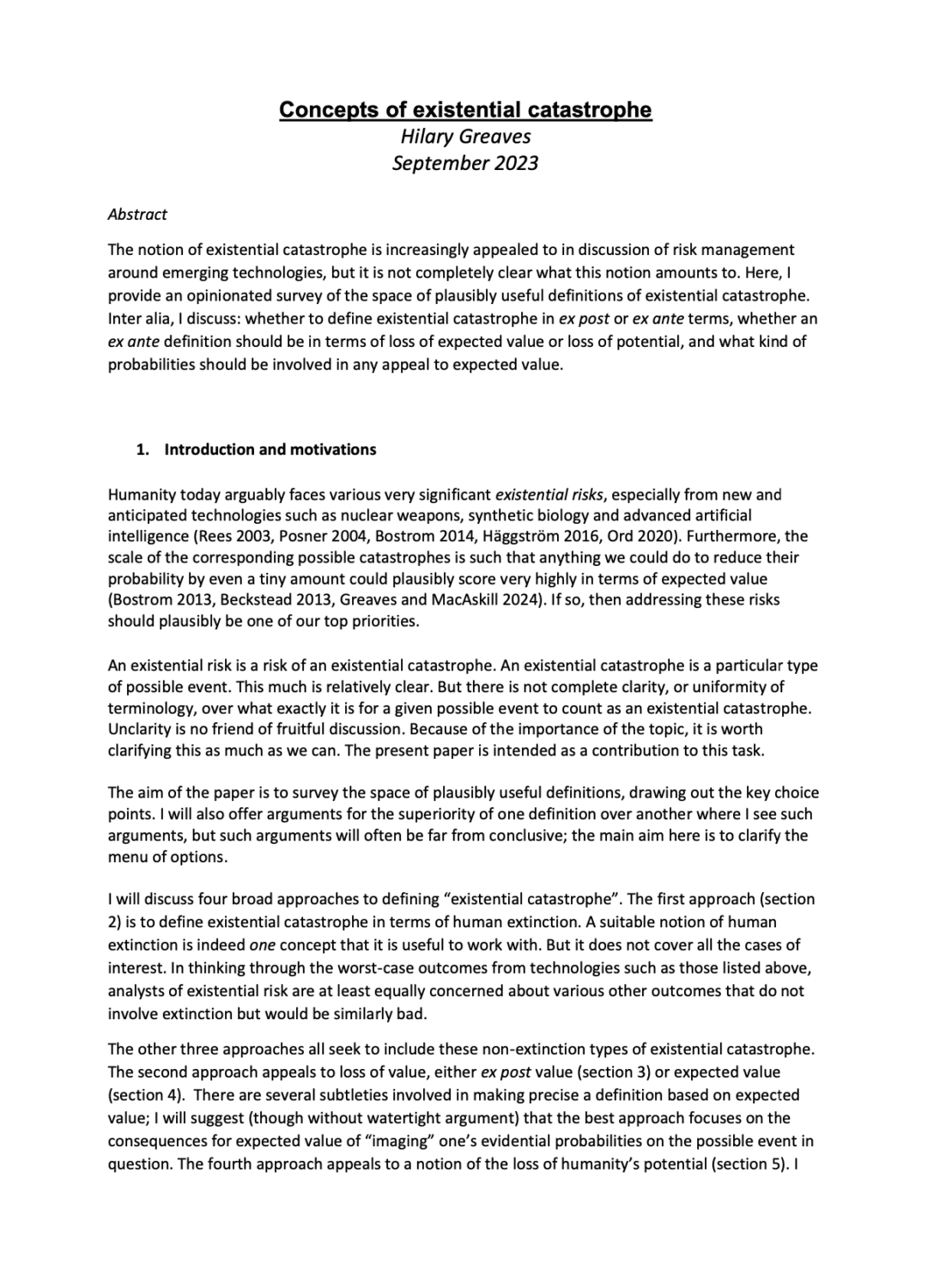Concepts of existential catastrophe
Hilary Greaves (University of Oxford)
GPI Working Paper No. 8-2023, forthcoming in The Monist
The notion of existential catastrophe is increasingly appealed to in discussion of risk management around emerging technologies, but it is not completely clear what this notion amounts to. Here, I provide an opinionated survey of the space of plausibly useful definitions of existential catastrophe. Inter alia, I discuss: whether to define existential catastrophe in ex post or ex ante terms, whether an ex ante definition should be in terms of loss of expected value or loss of potential, and what kind of probabilities should be involved in any appeal to expected value.
Other working papers
Time Bias and Altruism – Leora Urim Sung (University College London)
We are typically near-future biased, being more concerned with our near future than our distant future. This near-future bias can be directed at others too, being more concerned with their near future than their distant future. In this paper, I argue that, because we discount the future in this way, beyond a certain point in time, we morally ought to be more concerned with the present well- being of others than with the well-being of our distant future selves. It follows that we morally ought to sacrifice…
Choosing the future: Markets, ethics and rapprochement in social discounting – Antony Millner (University of California, Santa Barbara) and Geoffrey Heal (Columbia University)
This paper provides a critical review of the literature on choosing social discount rates (SDRs) for public cost-benefit analysis. We discuss two dominant approaches, the first based on market prices, and the second based on intertemporal ethics. While both methods have attractive features, neither is immune to criticism. …
The Hinge of History Hypothesis: Reply to MacAskill – Andreas Mogensen (Global Priorities Institute, University of Oxford)
Some believe that the current era is uniquely important with respect to how well the rest of human history goes. Following Parfit, call this the Hinge of History Hypothesis. Recently, MacAskill has argued that our era is actually very unlikely to be especially influential in the way asserted by the Hinge of History Hypothesis. I respond to MacAskill, pointing to important unresolved ambiguities in his proposed definition of what it means for a time to be influential and criticizing the two arguments…

